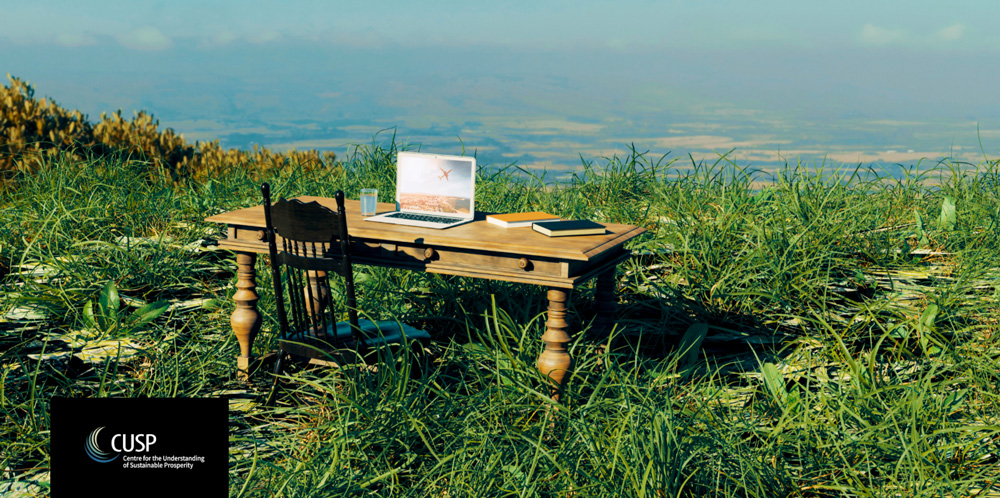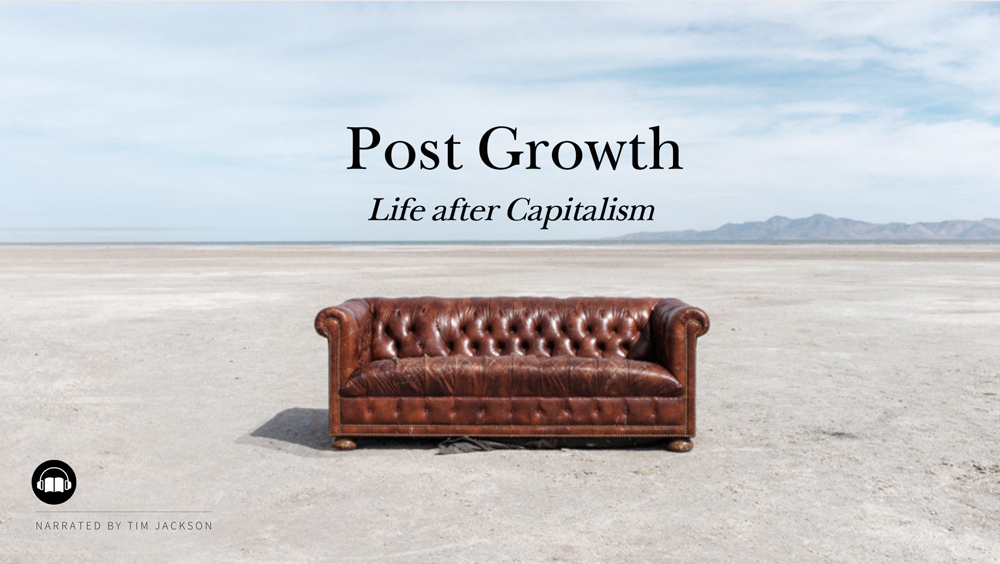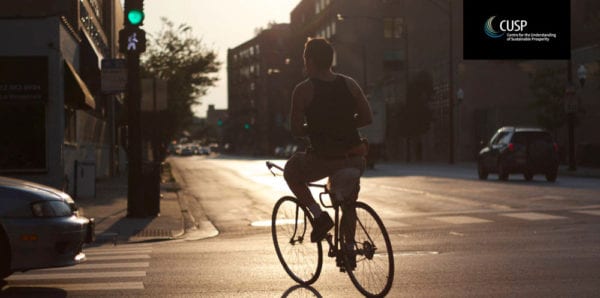Investing to escape: the ‘Financial Independence Retire Early’ movement
Using semi-structured interviews and literature reviews, CUSP researchers Will Davies and Nick Taylor assess the ambivalent moral economy of the ‘Financial Independence/Retire Early’ (FIRE) community, trying to understand how and why individuals seek this unusual relationship to capitalism, that pursues the status of rentier through the strategic rejection of materialism. This blog summarises the main findings, connecting them to some of the elite lifestyle changes that have been triggered by the Covid-19 pandemic.

The past year has cast a strange light on the ‘normal’ rituals and institutions of capitalism, raising doubts about which of them will return, and which of them may be gone for good. Will urban centres still be dominated by offices and shops in the future? If not, what will replace them? To what extent will Zoom and similar platforms be a permanent replacement for meetings and long-distance travel? Are we witnessing a new era of big state intervention in the economy, backed by much larger quantities of borrowing, or merely a period of emergency relief?
One striking feature of the last year has been that, after the initial hit to the stock markets when the pandemic began, asset prices (including the UK property market) have continued to rise, while labour markets and GDP have taken a hammering. The organisation of economies such as the UK, and the policies in vogue to support it (such as quantitative easing), mean that the ‘Piketty effect’—the fact that wealth grows faster than incomes—seems locked in for the foreseeable future.
Many of the more privileged sections of society have seized this historic moment to question the place of work, consumption, commuting and cities in their lives. Around the world, elite knowledge-workers—in finance, business consulting, the professions and senior management – have upped sticks and moved to second homes in the country with their families, and taken advantage of the broadband cables that now penetrate the countryside to continue working, while their children continued their schooling online. Those who are self-employed or own their businesses may have the luxury of deciding how many hours they wish to work in a week. Others, who are largely living off portfolios of assets, may be effectively retired. Even outside of this rarefied wealth elite, many people in cities such as London have been rethinking their priorities, especially those with children.
To the extent that this trend leaves a legacy, we could be witnessing a new compact between wealth and the countryside, in which the steady influx of wealth elites into global cities (such as London) since the late 1980s goes into reverse. We could equally see a new type of ‘environmentalism of the rich’, as it’s become known, and the deployment of private capital in pursuit of elite visions of ‘nature’, ‘wilderness’ and a de-commodified existence. It would be odd to describe this as ‘anti-capitalism’, when it is so buttressed by asset prices and the human capital of the elites concerned, but it is a deliberate distancing from the urban world of exchange values, heteronomous work practices and consumerism.
Several years before Covid-19 had appeared, in the aftermath of the previous global economic shock in 2008, elements of this mindset became visible in the development of the ‘Financial Independence Retire Early’ (FIRE) community, that is the focus of our new paper published in Journal of Cultural Economy. As we detail, FIRE practitioners focus on cutting their spending (especially by avoiding debt), so as to build up surpluses which they invest, typically into the stock market via an index fund. By paying close attention to their expenditure, and earning a steady rate of return on their investments, the goal is to acquire autonomy from the world of work, consumption and debt, which can be exploited for more fulfilling purposes of time with family and nature.
As we detail in the paper, FIRE has certain commonalities with prior traditions of financial self-help, frugality and American venerations of nature, but it combines them in new ways. Many of its leading practitioners keep blogs, in which they share tips for cutting spending and investing. Via these blogs, we discovered an interesting type of accounting mentality, in which the purchase of mundane items such as a bicycle or a coffee machine could be evaluated in terms of the net savings they provide over the long-term (in these examples with respect to petrol and takeaway coffees). Different ways of logging costs and quantifying benefits—crucially, free time—are invented, so as to facilitate freedom from obligations and dependencies that are part and parcel of a ‘normal’ working life.
As we discovered, most FIRE practitioners do continue to work in one way or another, some doing bits of their old job (often in areas such as IT and finance), others working on the upkeep of their houses, but independence means never having to work. Time spent with family seemed to be a crucial index of value for many of those subscribing to FIRE principles, and it was this that the heteronomous, commodified existence of indebted, over-consuming, commuting employment was deemed to destroy.
Those we interviewed were well aware of the apparent contradiction, that their escape from the rat-race was predicated on the steady growth of the stock market, which they viewed as indefinite in its horizons. A calculative heuristic of FIRE is that stock market growth means that individuals can withdraw 4% of their savings a year for living costs, and not deplete their assets. This rate allows FIRE adherents to calculate how much saving they need to retire, which in turn helps them calculate what age they might realistically achieve financial independence. This exit from ‘normal’ working life, and refusal of the seductions of materialism and debt, remains implicitly dependent on the indefinite growth and continuation of ‘normal’ capitalism’. Their escape from exploitation is facilitated by financial calculation—what we term the ‘financialisation of anti-capitalism’.
On one level it is a little unfair to compare FIRE practitioners to the wealth elites fleeing locked-down cities for their country homes. After all, FIRE is a discourse of frugality as well as investment—a critique of materialism and the hedonic treadmill, which creates wealth through cuts to expenditure, and which only values that wealth to the extent that it frees up more time. Many FIRE adherents live simple family lives, living off their own skills and land, and not just off the stock market. Nevertheless, within this behavioural and ethical innovation we can witness the emergence of a distinctive moral worldview, whose relationship to capitalism is fundamentally ambivalent. An economy organised around the interests of asset-owners, such as ours, almost inevitably gives rise to new lifestyles and ‘hacks’ which can repurpose economic activity in more fulfilling ways, which don’t rely on work.
One of the uncomfortable lessons of both the pandemic and FIRE for those of us interested in the meaning of ‘sustainable prosperity’ is that the pursuit of ethical, sustainable existence for some may implicitly depend on the ongoing exploitation of others elsewhere. FIRE represents an exit mentality, fuelled by an entirely understandable rejection of materialism, over-work and debt. Likewise, the turn towards rural life that has been a feature of upper-class responses to the pandemic may involve an authentic rediscovery of non-market values and practices. And yet some must remain in the city; some must remain in the workplace, if the stock market is to continue its 3% growth. This is not a charge of hypocrisy against FIRE devotees, whom we found to be impressively honest about the trade-offs they were making and their own personal good-fortune. It is simply to try and grasp the class dynamics of how nature, family and ‘the good life’ become available in an era dominated by asset appreciation and widespread income stagnation.



